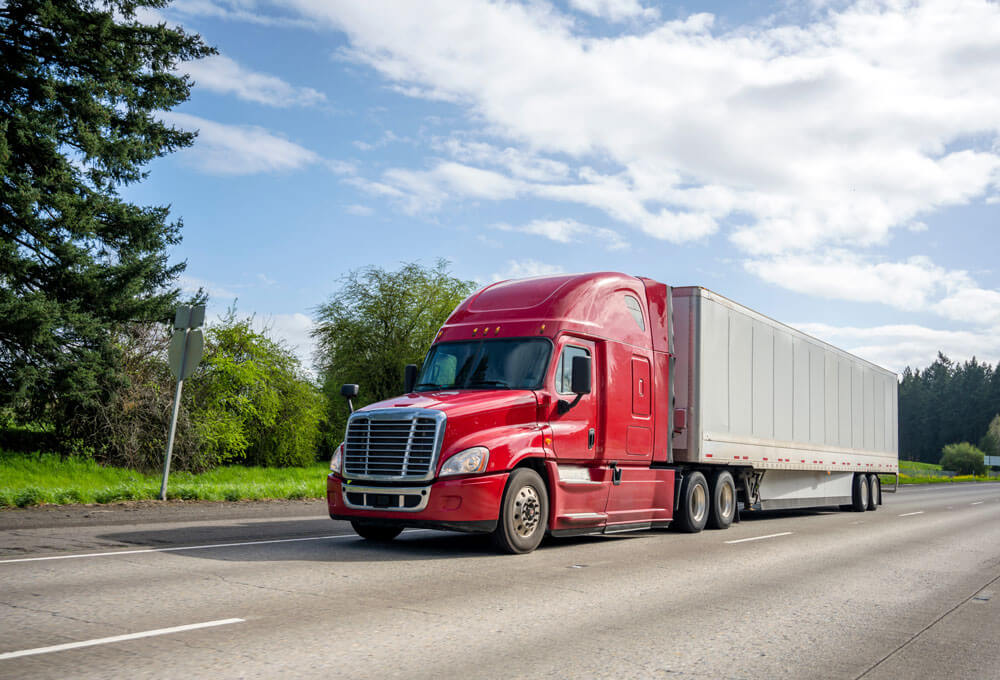Dry van trucking refers to the use of an enclosed trailer to transport non-perishable goods. They’re referred to as a ‘dry van’ since these trucks are designed to keep the cargo dry and safe from external elements like bad weather and road debris. The items transported are usually palletized, stacked, and shrink-wrapped for security during transit. Dry vans are incredibly versatile and are widely used in the trucking industry due to their convenience and ease of loading and unloading.
Dry Van vs. Other Types of Trucking
While the trucking industry encompasses various types of trailers like flatbeds, refrigerated trucks, or tankers, each with its unique characteristics and purpose, dry vans stand out due to their simplicity and adaptability.
Unlike flatbeds, dry vans are fully enclosed, offering better protection for the cargo against weather elements and theft. They’re also not restricted by certain weather conditions, making them a popular choice for year-round shipping. On the other hand, compared to reefer trucks, which are equipped with refrigeration systems for temperature-sensitive cargo, dry vans are used for goods that don’t require any special temperature controls. Ultimately, this makes them a more cost-effective option for those looking to get started in the trucking industry.
The Necessity of Proper Insurance in Dry Van Trucking
Despite the protective design of dry vans, accidents, theft, or unforeseen damages can still occur, leading to potential financial losses. This is where the importance of proper insurance comes into play.
Just like personal vehicles, commercial trucks require insurance coverage. However, commercial truck insurance is more complex and includes various types of coverage like liability insurance, physical damage coverage, cargo insurance, and more.
Liability insurance is a legal requirement and covers damages caused by the truck to other people or property. Physical damage coverage is optional but essential as it covers repair or replacement costs if the truck is damaged in an accident, theft, or other incidents.
Most crucially for dry van trucking, cargo insurance provides coverage for the goods being transported. Given the wide array of goods that can be transported in dry vans – ranging from electronics to clothing – cargo insurance ensures that even if something unforeseen happens, the value of the goods can be recuperated, providing peace of mind for both the trucker and the client.
Bottom Line
In conclusion, while dry van trucking offers a highly versatile and secure mode of transportation for goods, having the right insurance in place is vital. It not only provides financial protection against potential risks but also bolsters the confidence of clients, making your trucking business more trustworthy and competitive. Proper insurance is not merely a legal or operational necessity, but a strategic tool for sustainable and secure business growth in the dry van trucking industry.
Additional Resources for Truck Drivers:
- How to secure box truck contracts
- For truck insurance quotes
- Information on general freight


